Suchergebnisse
IEA Bioenergy Task 39: Biofuels to Decarbonize Transport (Working period 2022 - 2024)
The long-term goal of Task 39 is to drive decarbonisation in the transport sector using biogenic, sustainable, low-carbon fuels. This includes conventional and advanced biofuels that can be produced via different technological routes (oleochemical, biochemical, thermochemical and hybrid). In the 2022-2024 triennium, the focus was increasingly on long-haul transport, which is more difficult to electrify.
Multifunctional energy solutions in tourism
Multifunctional energy solutions for the tourism-region Alpendorf: Increasing energy efficiency, use of renewables, organisation measures considering existing cooperations.
Solar Air Systems
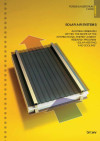
Austrian Research within the scope of the International Energ Agency research program "Solar Heating and Cooling"
Forschungsforum
1/2000
Herausgeber: BMVIT
Englisch, 6 Seiten
Downloads zur Publikation
Energy-self-sufficient district Güssing
Development of a concept that shows the possibility of changing the energy supply of a district from fossil to 100% renewable energy carrier
Heating With The Sun
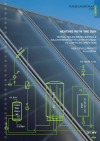
Partial solar heating & solar systems with layer storage in low-flow operation New developments in Austria
Forschungsforum
2/1997
Herausgeber: BMVIT
Englisch, 6 Seiten
Downloads zur Publikation
Timber Passive House at Mühlweg, 1210 Vienna
Low-rise housing with 70 units (200 residents) in solid wood plate construction designed to meet European passive building standards. Strategies for highly ecological and sustainable building within the economic constraints of social housing, Mühlweg, 1210 Vienna. Industrial pre-fabrication, ...
Integral Resource Optimization Network Study
A robust, distributed control network for optimizing the resource "electrical energy". Consumers, producers and storages network in a self-organized way and coordinate autonomously their usage of electrical energy. Load-shaping, transparent flow of information, system-wide increase in efficiency.
Delphi Report Austria

Future-oriented approaches to the long-term comptitiveness an locational quality of Austria
Forschungsforum
4/1998
Herausgeber: BMVIT
Englisch, 6 Seiten
Downloads zur Publikation
Daylight In Buildings

Austria´s contribution to Task 21 of IEA "Solar Heatin and Cooling" Program
Forschungsforum
3/2000
Herausgeber: BMVIT
Englisch, 6 Seiten
Downloads zur Publikation
Wind Power In Austria

Prerequisites, Situation, Evaluation, Perspectives
Forschungsforum
1/1995
Herausgeber: BMVIT
Englisch, 6 Seiten
Model region Güssing
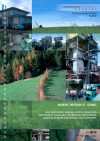
Self-sufficient energy supply based on regionally available renewable resourcesand sustainable regional development
Forschungsforum
1/2007
Herausgeber: BMVIT
Englisch, 6 Seiten
Downloads zur Publikation
E3 Building
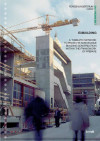
A thematic network to promote sustainable building constructio within the framework of PREPARE
Forschungsforum
1/2001
Herausgeber: BMVIT
Englisch, 6 Seiten
Downloads zur Publikation
Eco-Services

Strategies for sustainable development
Forschungsforum
4/1999
Herausgeber: BMVIT
Englisch, 6 Seiten
Downloads zur Publikation
Design of pumped storage schemes
Development of a new surge tank system for pumped storage schemes (PSS) for the governing of the changing requirements in electricity networks due to integration of renewable, volatile energy sources.
Photovoltaic Roadmap for Austria
Development of a Photovoltaic Roadmap for Austria - a study with the intention to screen the opportunities, economical potential as well as the barriers of the promising technology Photovoltaics as basis for strategic decisions in energy relevant policies.
Presentation of the effective use of innovative bioenergy technologies in the Austrian energy system of the future (BioEff)
The study shows possibilities and strategies for the effective use of innovative bioenergy technologies in Austria.
Photovoltaic - Industry and Research in Austria
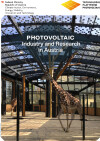
This brochure examines the existing domestic value creation in the field of photovoltaics and provides an overview of the Austrian research landscape, along with open research questions related to photovoltaic technology.
Herausgeber: Austrian Photovoltaic Technology Platform - TPPV supported by BMK (2024)
Englisch, 13 Seiten
Downloads zur Publikation
Fair market conditions for virtual power plants
Analysis of technical, economical and regulatory conditions to get fair terms under competition in the liberalised market for virtual power plants on renewable energy basis.
Urban Future - "Resource Efficient City of Tomorrow"
Challenges fort he cities of tomorrow with research issues referring to resource management, efficiency and technology development
Virtual power plants for self-sustaining regions
Geographic methods for the combination of renewable energy sources to create "virtual power plants" and development of self-sustaining regions in terms of energy-balance and the Kyoto target.
